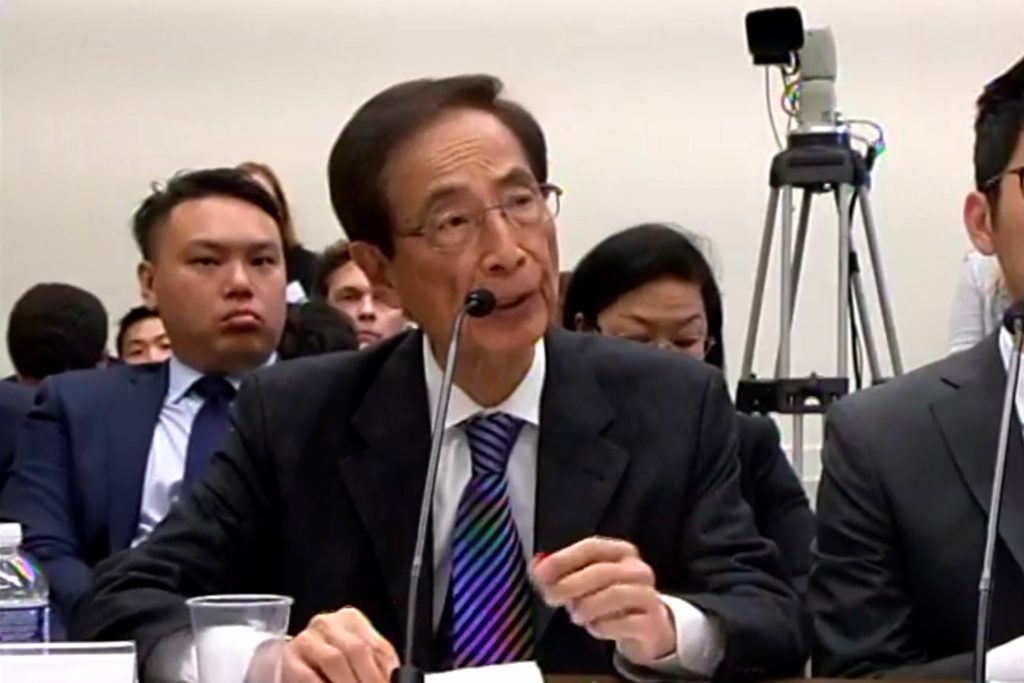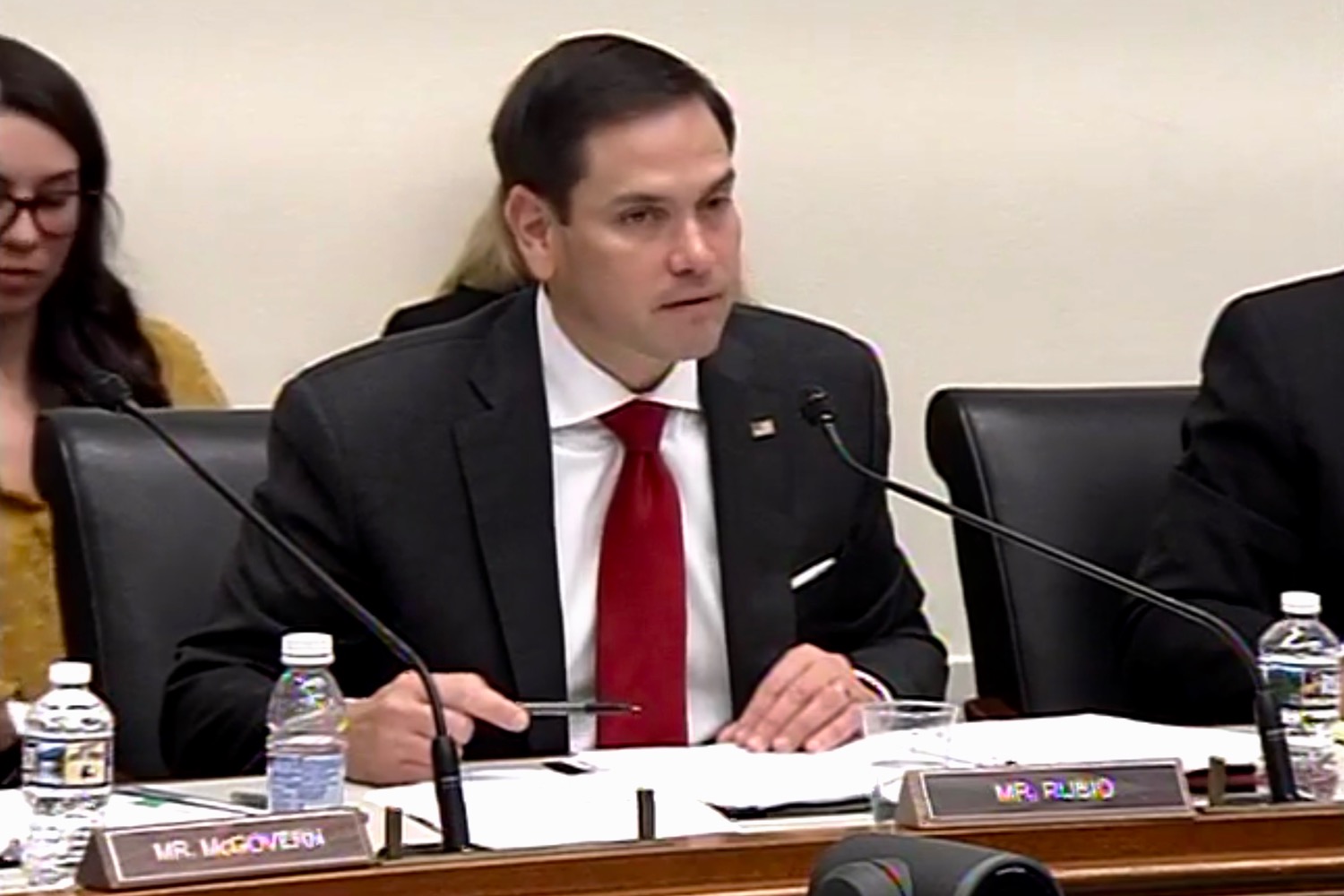US Senator Marco Rubio yesterday announced his intentions to introduce legislation laying out concrete consequences for anyone involved in the suppression of Hong Kong’s basic liberties, including freezing any US-based assets.
Speaking at a hearing in Washington, DC on Wednesday, Rubio cited a “particularly troubling” year of political developments in the SAR, one that included the banning of a pro-independence political party, the effective expulsion of a foreign journalist, the jail terms handed to pro-democracy activists.
Noting that the freedoms enjoyed by Hong Kong under the “one country, two systems” framework were “eroding rapidly,” Rubio pointed in particular to the controversial extradition law amendments currently before the Legislative Council, and their potential to affect the 85,000 American citizens currently living in the city.
“That’s one of the reasons I’ll be re-introducing the Hong Kong Human Rights and Democracy Act, which updates our Hong Kong policy and establishes punitive measures against govt officials responsible for suppressing fundamental freedoms in Hong Kong,” Rubio said at yesterday’s hearing.
“We have important challenges in our relationship with China. We have important agreements on a variety of issues that I hope we can find agreement on. But the future of Hong Kong and human rights in general cannot be sidelined as part of these conversations.”
Rubio first introduced the Hong Kong Human Rights and Democracy Act, along with fellow Republican Senator Tom Cotton, in 2016. It was referred to the Senate Committee on Foreign Relations in 2017, but does not appear to have progressed from there.
The bill would, among other things, require the secretary of state to “certify to Congress annually whether Hong Kong is sufficiently autonomous to justify separate treatment” from mainland China, and empower the president to freeze the assets and revoke visas of individuals involved in “actions suppressing basic freedoms” in the SAR.
Yesterday’s hearing, convened by the Congressional-Executive Commission on China (CECC), was addressed by a handful of Hong Kong pro-democracy figures, including former lawmaker and Democratic Party founder Martin Lee. In his testimony to the commission, Lee said that the proposed changes to the extradition law — which would allow for the first time extradition to the mainland, Taiwan, and Macao — would effectively “legalize kidnapping.”

Rubio seized on Lee’s characterization, calling it an “apt description.”
“‘Legalize kidnapping,’” Rubio repeated. “That should be something that should concern everyone.”
The hearing comes just days after the US-China Commission, a separate bipartisan body established by Congress, released a report warning that the law could violate key parts of the Hong Kong Policy Act, the foundation of US-Hong Kong relations, and could “create serious risks for U.S. national security and economic interests in the territory.”
The extradition law has proven deeply unpopular in Hong Kong, drawing criticism from prominent lawyers, businesspeople, pro-democracy activists, and foreign governments — not to mention mass protests.
The government first proposed the law to deal with the case of a Hongkonger who is wanted for murder in Taiwan, but who can’t be extradited under the city’s current laws, which forbid extraditions to any part of China, including the self-governed Taiwan.
Since then, however, even Taiwan has voiced its opposition to the law, saying it will not seek the suspect’s return if the bill is passed.
Nonetheless, government officials and their pro-Beijing peers in the legislature have doggedly forged ahead with the bill in spite of the mounting pushback, prompting gridlock, and even a brawl, in the Legislative Council.
Meanwhile, Zhang Xiaoming, director of China’s Hong Kong and Macau Affairs Office, voiced support for the bill, HKFP reports, urging lawmakers in a statement yesterday “to uphold justice and rule of law…[and] respect facts and the ‘One Country’ under ‘One Country, Two Systems.’”





Reader Interactions